
Remember we seem to have started out on the right trajectory and also largely funding individual PIs at Research Universities as, at the time, that was viewed as the place where "risky" research is best done.
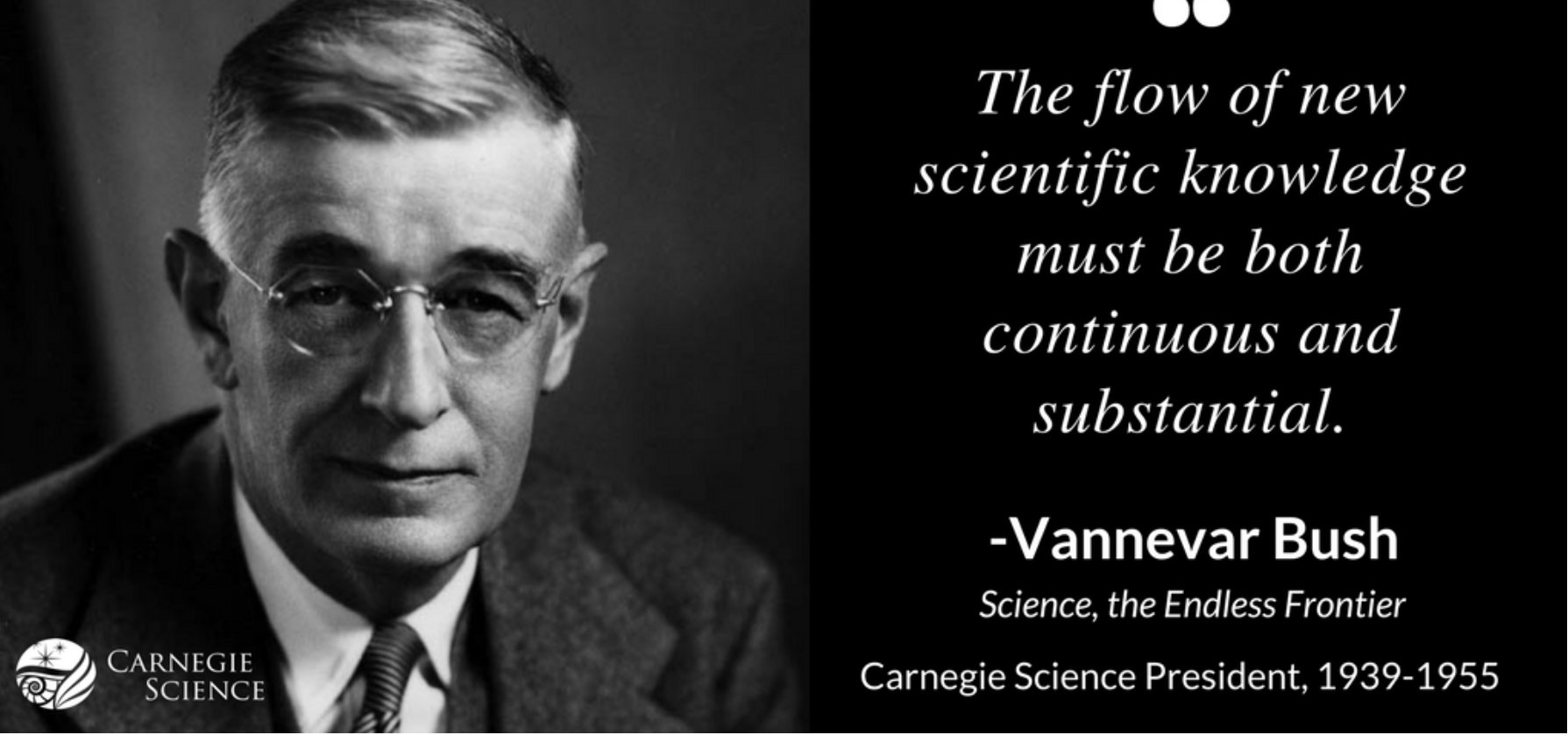
What has changed since this vision?
- 1998: The start of the NSF's decision to fund consortia more than individual PIs.
- 1993: made science founding accountable to congressinoal oversight on an annual basis.
- 1982: The Bayh-Dole act allowed Universities to become for profit insitutions by setting up Tech Transfer. In most cases, this changed the hiring profile of science faculty away from basic (risky) research to ones that can develop patents.
- Number of Postdos and PIs in the US continues to grow
- Funding for science is NOT growing in a commensurate way at all!
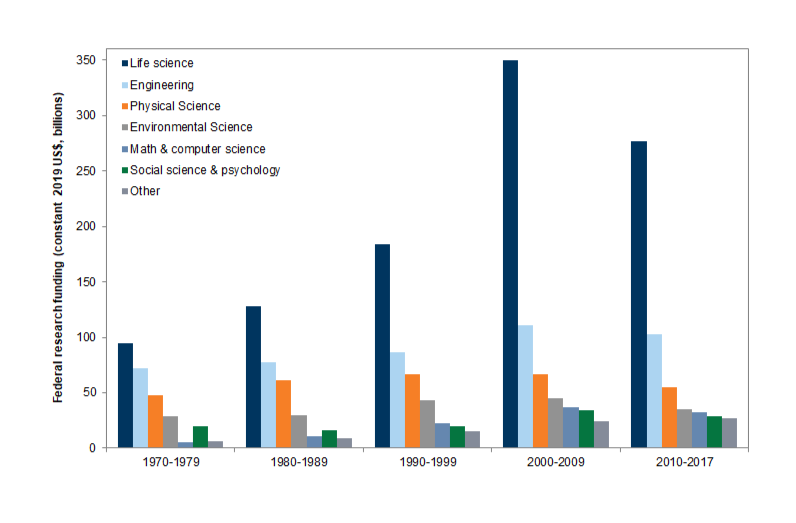
Notice the big uptick in the 2000s for Life Sciences. While that is fine, in a zero sum game, it detracts from funding other sources. This is really when we went off the rails with respect to Bush's vision - will the newly proposed Endless Frontier Act of 2021 restore the trajectory? The current trajectory looks quite bad and probably quite difficult to course correct. A reasonable goal would be to return to the level of 5%
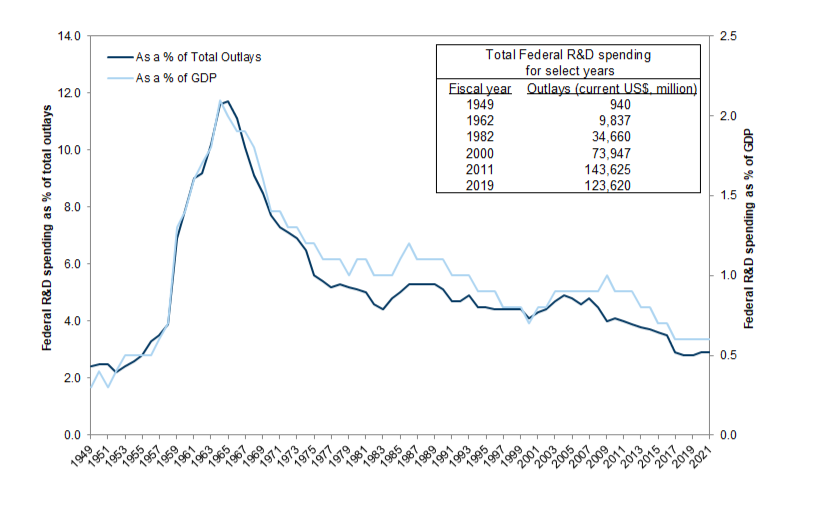
And not even pandemics seemed to have boosted funding:
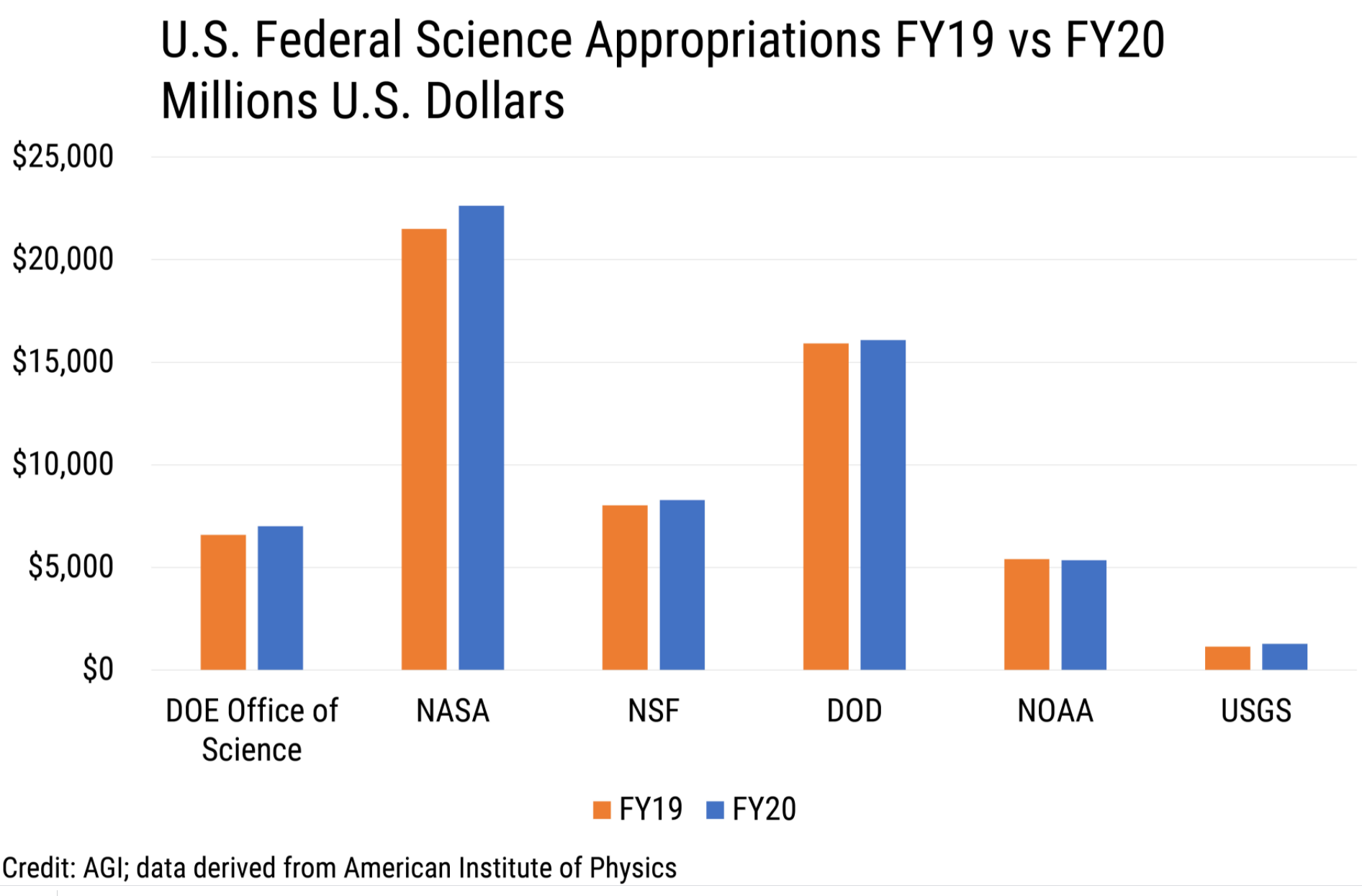
And all issues of policy in science needs to examined with the ethical lens:

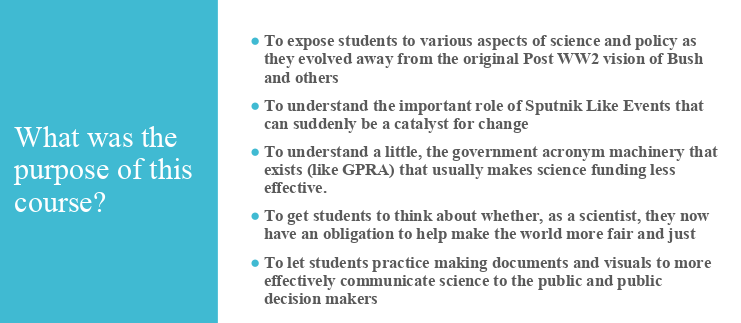
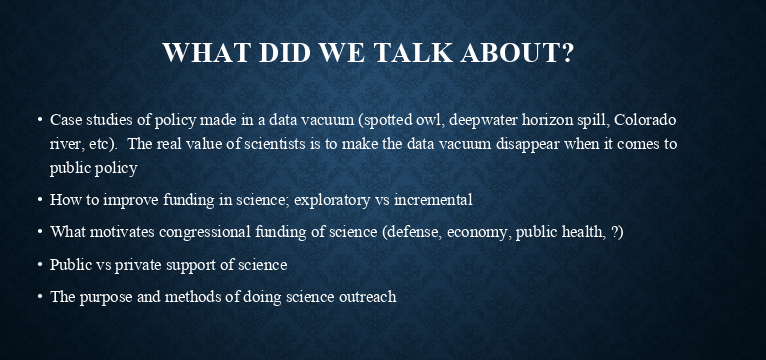
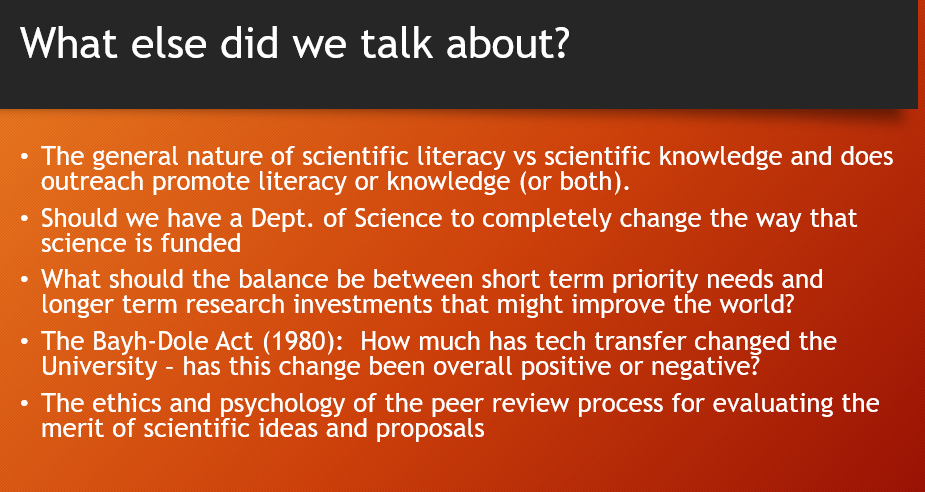
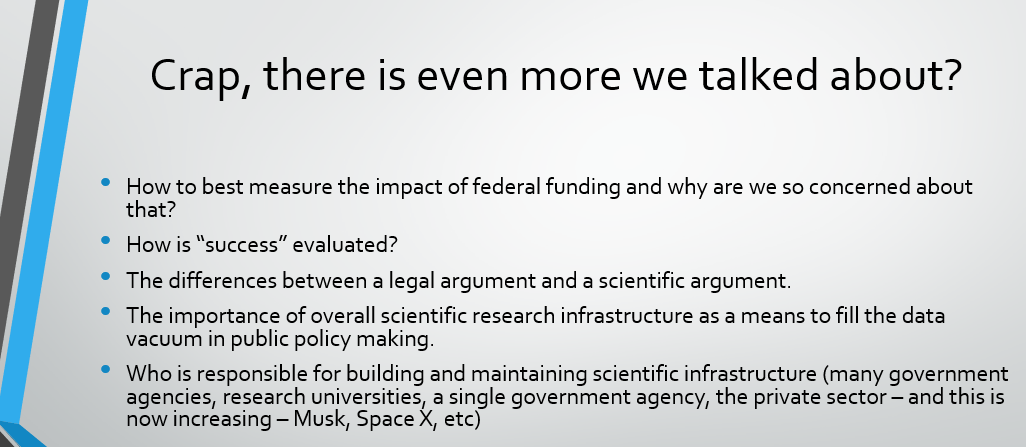
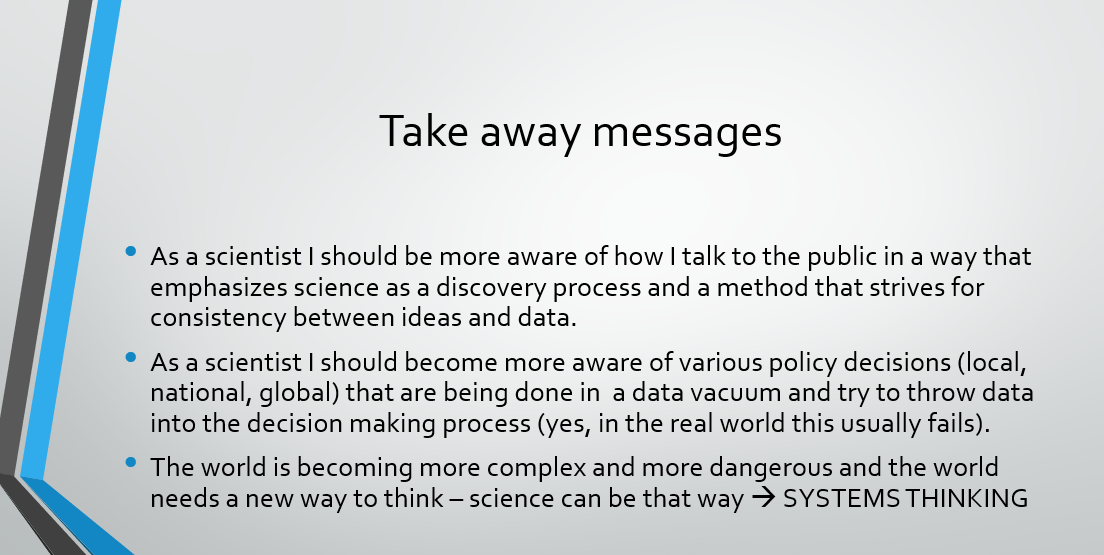
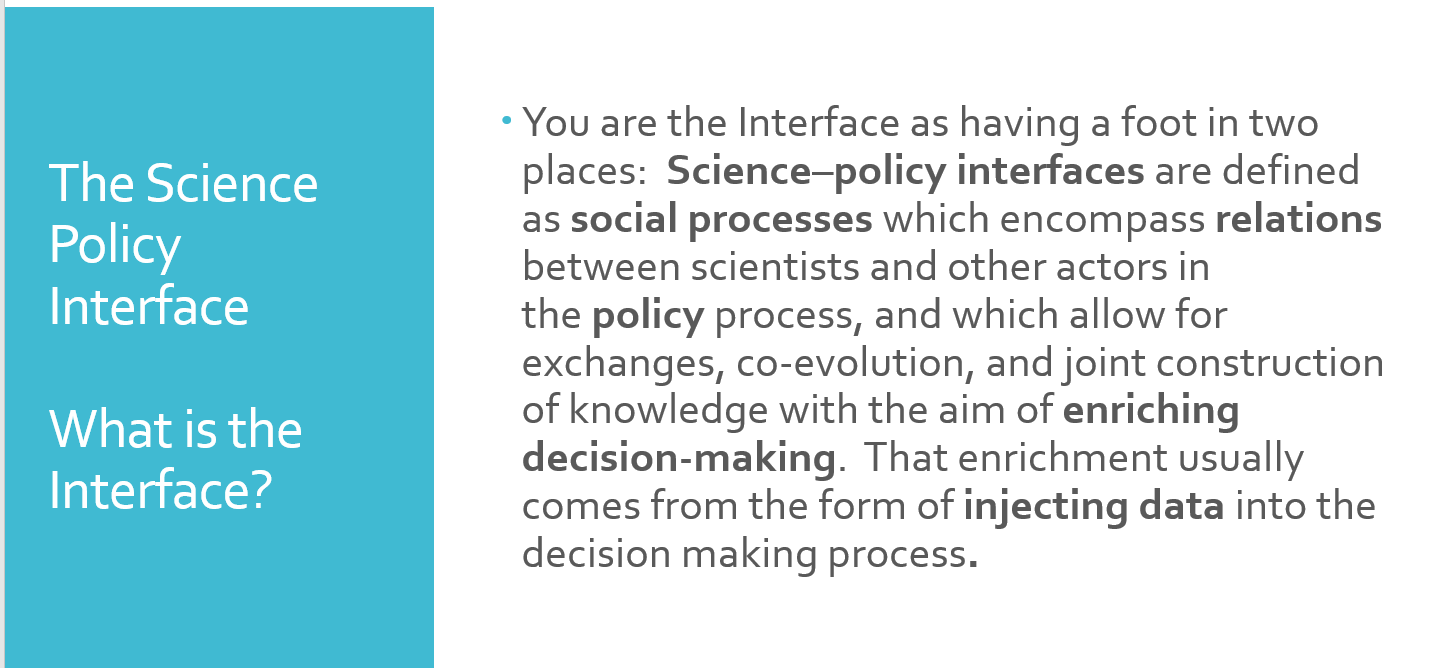
And as far as you, the science student goes, the situation that has put you in peril for a standard career has been known for a very long time. In my opinion most Universities are acting in an unethical manner by a) training you to get a PHD in a field you are unlikely to have a career in and b) failing to give alternative skills to these PHD students to make an easier transition to another kind of science career. This situation has been going on for quite a while, and while this particular graphic is 10 years old, the problem remains. Unless the students themselves put pressure on the way they are trained, nothing likely is going to improve.
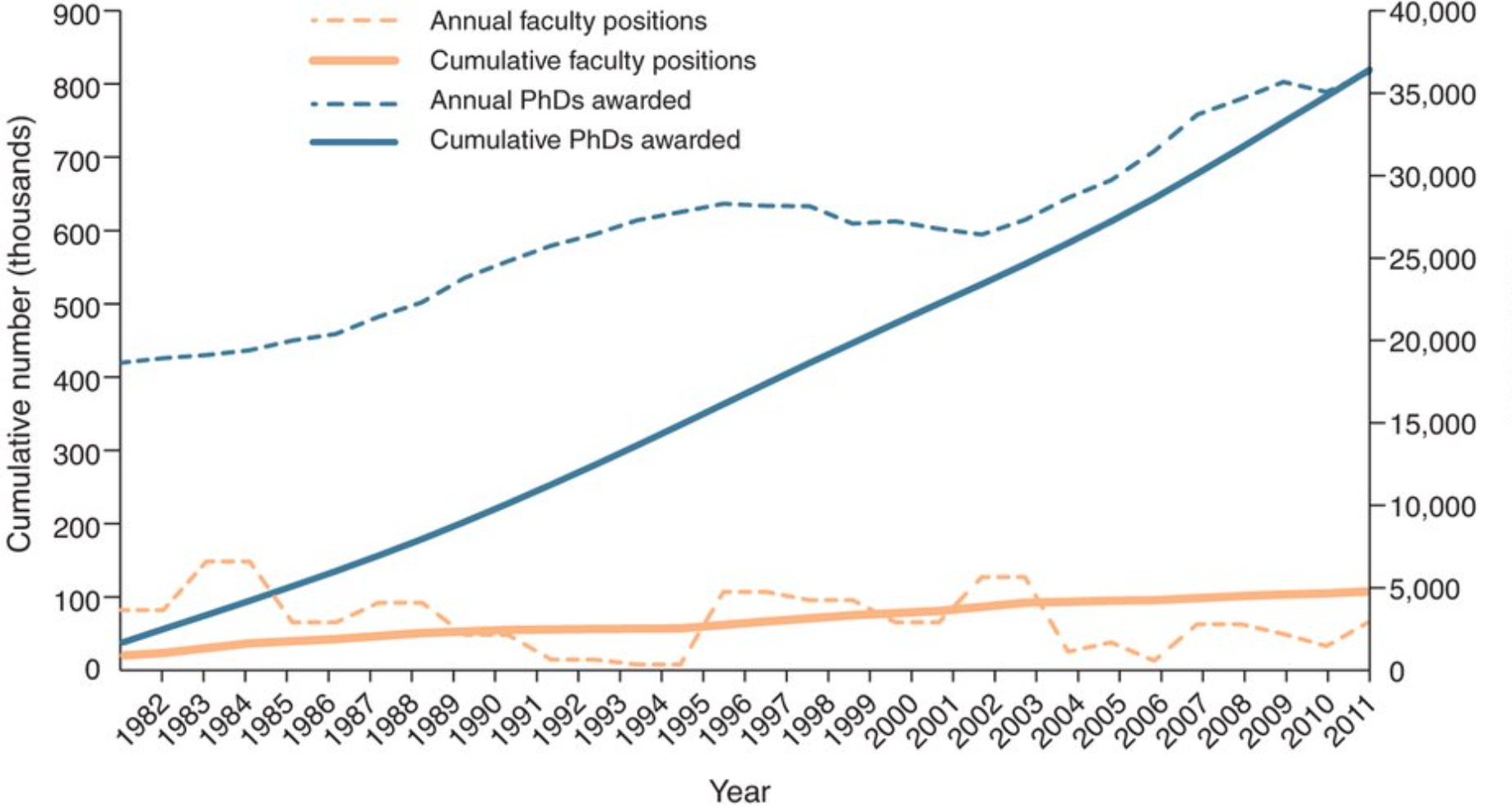
|